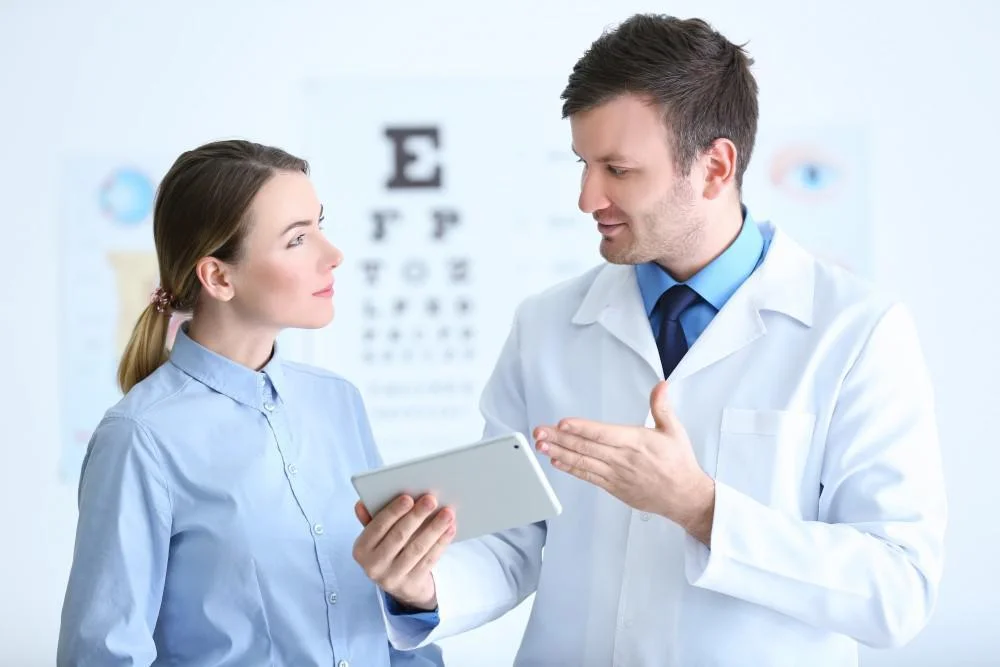Normally with every blink, eyes get refreshed by a tear layer that keeps them moist and washes away foreign matter. Chronically dry eyes — aka dry eye syndrome — is a frustrating condition in which you don’t produce enough tears or your tears aren’t healthy.
At Eye Associates of Monmouth in Colts Neck, New Jersey, expert ophthalmologist John Ghobrial, MD, specializes in diagnosing and treating dry eye syndrome. If your eyes are dry, itchy, or red, here’s how we can help.
Why dry eye?
If you have dry eye syndrome, the reason those over-the-counter eye drops you reach for when your eyes are red, dry, and itchy don’t work is that they’re not formulated to treat the root of your problem. In fact, they could even make it worse, especially if they contain chemicals to lessen redness.
The first step toward effective treatment of dry eye is a precise diagnosis. When you come to our office complaining of chronically dry, itchy eyes, Dr. Ghobrial:
- Conducts a comprehensive eye exam
- Evaluates your eyelids and corneas
- Observes blink dynamics
- Reviews your health history, including medication use
- Measures the volume of your tears
- Takes tear samples to examine them for dry eye disease
- Conducts an osmolarity test to measure particles and water in your tears
- Uses special dyes to determine the quality of your tears
A tear sample lets Dr. Ghobrial know if you have markers for the dry eye syndrome, including elevated matrix metalloproteinase-9 or decreased lactoferrin. Once he understands the factors involved in your dry eyes, he devises a treatment plan.
Treatments to increase tears
If you have a mild case of dry eye, Dr. Ghobrial may recommend judicious use of over-the-counter eye drops, but only those that are designed for moistening, not for addressing redness. He also advises against drops that have preservatives.
If your body doesn’t produce enough tears, Dr. Ghobrial may prescribe special eye drops that increase tear production. He may also advise taking an omega-3 fatty acid nutritional supplement.
Treatments to conserve tears
Another cause of dry eye is tears that drain too quickly, leaving your eye vulnerable to outside irritants. Tears normally drain through your tear ducts, at the inside corners of your eyes.
However, if you lose your tears too quickly, Dr. Ghobrial may insert silicone plugs in your tear ducts that block the openings. This allows the tears to stay on your eyes longer. You can also have surgery to permanently close your tear ducts.
Treatments for inflammation
Dry eyes may also be the result of inflammation in your eyelids or your corneas. If so, Dr. Ghobrial may recommend one or more of the following:
- Prescription eye drops
- Prescription eye ointments
- Warm compresses
- Eyelid massage
- Eyelid cleaners
Treating inflammation makes your eyes feel more comfortable and reduces redness and puffiness.
Change your habits
You can also help your dry eyes feel more comfortable by making changes in your lifestyle and environment. Key steps to take:
- Use humidifiers indoors
- Stay hydrated
- Don’t smoke
- Blink frequently
- Don’t stare at your devices for long periods
- Avoid getting air blown in your face by hair dryers or air conditioners
- Avoid hot, dry climates, such as deserts and airplanes
Find out why your eyes are dry by scheduling a dry eye consultation with us today. Contact our friendly team by phone, or book an appointment online.


